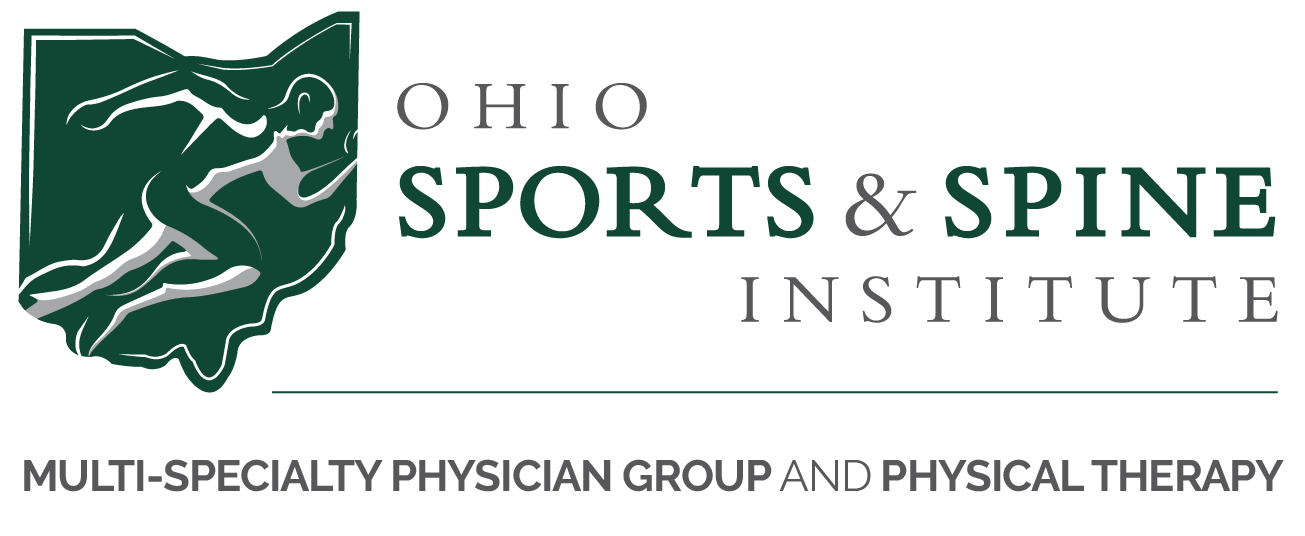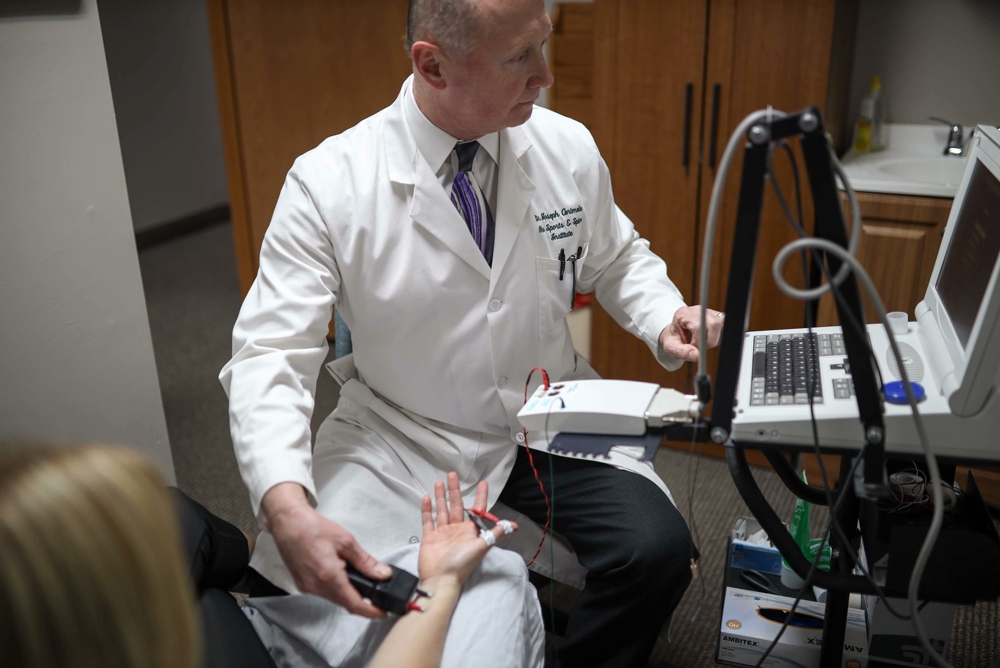Electromyography (EMG) Testing
What is EMG/NCV Nerve Testing?
Physiatrists utilize EMG testing in-office, which is a diagnostic procedure that is useful in determining whether suspected muscle groups or nerves have been injured or related to a specific disease process. It measures the electrical activity of your nerves and muscles.
The test consists of two parts: nerve conduction study and needle electrode examination. EMGs can help determine the cause of muscle weakness, paralysis, spasms, paresthesias, numbness/tingling, as well as pain in the arms, legs, hands, feet and face.
EMGs can be used to diagnose carpal tunnel, tarsal tunnel, neuropathies, cervical and lumbar pinched nerves, tingling or numbness in the arms or legs, and other neurological conditions.
Benefits of EMG/VCV
- Helps Diagnose Nerve And Muscle Disorders
- Pinpoints The Cause Of Muscle Weakness, Spasms, Or Paralysis
- Assists In Detecting Nerve Dysfunction Or Damage
- Guides Treatment Planning For Conditions Like Carpal Tunnel Syndrome, Neuropathy, Or Radiculopathy
- Monitors The Progress Of Neuromuscular Diseases
- Helps Differentiate Between Muscle Disorders And Nerve Disorders
- Can Confirm Or Rule Out Suspected Medical Conditions
- Aids In Recovery Planning After Injury Or Surgery
What Conditions Can EMG Help Diagnose?
- Carpal Tunnel Syndrome
- Pinpoints The Cause Of Muscle Weakness, Spasms, Or Paralysis
- Assists In Detecting Nerve Dysfunction Or Damage
- Guides Treatment Planning For Conditions Like Carpal Tunnel Syndrome, Neuropathy, Or Radiculopathy
- Monitors The Progress Of Neuromuscular Diseases
- Helps Differentiate Between Muscle Disorders And Nerve Disorders
- Can Confirm Or Rule Out Suspected Medical Conditions
- Aids In Recovery Planning After Injury Or Surgery
Frequently Asked Questions
No, there are no food or activity restrictions before or after an EMG test.
Wear loose, comfortable clothing. You may be asked to remove certain articles of clothing and/or wear a gown. Please also remove all jewelry before the test.
In most cases, yes. You should continue taking your medications as prescribed unless instructed otherwise by your physician.
If you are on blood thinners, notify the location where you’re having the EMG. The needle portion of the test could cause additional bleeding.
Medications for Myasthenia Gravis may interfere with the EMG test. Speak with your doctor beforehand to determine if any adjustments are needed.
Some people experience mild discomfort during the test, especially during the needle portion. However, the discomfort is usually brief and well tolerated.
Most EMG tests take between 30 to 60 minutes, depending on how many areas of the body are being tested.
Yes, in most cases you can drive yourself home after an EMG test. However, if you experience significant discomfort, you may want to arrange for someone to drive you.
EMG is generally safe. Minor risks include slight bruising, soreness, or bleeding where the needles were inserted.
Schedule an Appointment
Get started with a consultation to evaluate the source of your pain and the best course of action to alleviate that discomfort


